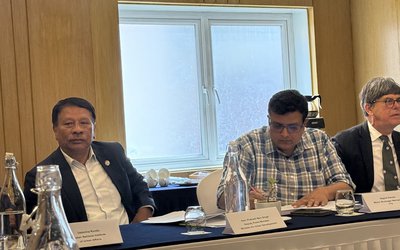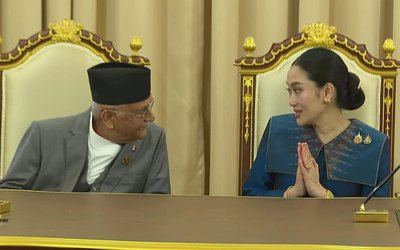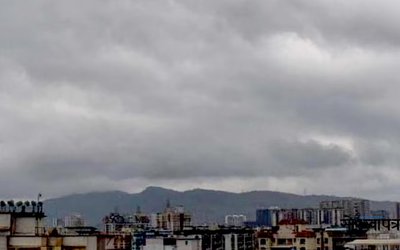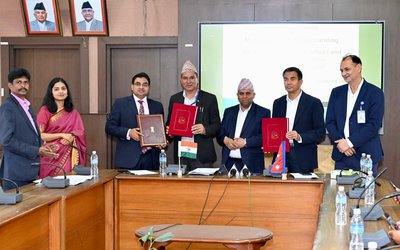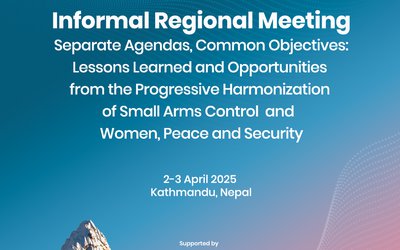
When we were small children in the 20th Century we were told about how industrious the Japanese had been and though a far-off Asian country had been able to copy and produce many of the Western products at a much cheaper rate. Of course, they seemed fragile and were not expected to last long! One rumour doing the rounds was that the empty tins containing various items e.g. baked beans were imported from US and then shipped back as small attractive toys for US children. In fact, a town in Japan had been named ‘Sweden’ so that cheap matches produced there could be legally labelled as ‘Made in Sweden’.
Of course, there is no copyright in names and I remember reading many years ago that there were seventeen Berlins in the US. In fact, there is Kathmandu in Maine too! It seems that people arriving in new lands hanker or long for their previous habitats. Some referred to these new places with the prefix of new. Examples that come to mind are New England, New South Wales, New Hampshire, New Caledonia, New Amsterdam, New York and New Delhi. In the local context we have our Baghbazaar at Pokhara.
People in days long past travelled from place to place for conquering territories, subjugating populations, exploiting the colonies for their benefit, looking for trade opportunities and carrying the local treasures such as carvings of stone, wood and metals back to their home country to enrich the museums there. As a result of the high prices paid for these even locals were involved in carting the treasures of their own lands to foreign shores. Artist late Lain Singh Bangdel drew our attention to the many images of our Gods that are abroad.
The Covid–19 pandemic which started towards the end of 2019 has turned our world topsy-turvy or upside own. Whereas our past tendency was to go forward, investigate or even to immigrate to foreign lands the trend now is to recoil back into one’s own shell. Many, who were braving the hazards of the road or the seas to get to the European Union met many barricades. Now the post corona situation has somewhat changed the situation. Unemployment being rife in many ‘first world’ lands, prospect for finding work there. The reality is that many who were working overseas are being sent or coming back because of the world wide corona virus crises.
Initially many Nepalis went as mercenaries or lahures to muglan and later as workers in various areas. Many migrant workers from India are returning to their homes in the Madesh or hills. This trend, will be very extensive as those in countries of the Gulf, Malaysia, Japan and Korea who are being sent or coming back return in hordes. The remittances from these lands not only improved their individual lives but paid for the fuel bill and the import of luxuries that we ‘Stay at Homes’ were accustomed to! We must also accept the fact that many Nepalis who were part time students in many lands or green card expats will no longer be in a position to continue there and will return. We here have to realise that special efforts or even sacrifices are necessary to cope with the almost bizarre future confronting us.
The Covid-19 situation is a game changer for us Nepalis. The returnees who have developed a variety of skills during their stay in foreign lands must be given incentives, including cash to enable them to stand on their own feet. The products of these small-scale initiatives in the farming or mechanical sectors must be provided a ready market and should not have to compete with products from elsewhere outside. Main criteria for loans should be specially focussed on starting activities to utilise the fallow land in both Madesh and the hills. Our government must discourage and stop basic household requirement products from different lands. The importing of poor-quality fertilisers and seeds must be stopped forthwith and those indulging in such activities penalised accordingly. What is surprising is that during the lockdown much vegetables and fruits were allowed into the country whilst the local produce of Nepali farms were not permitted to enter the urban areas and so rotted in the fields. Who was responsible for such a state of affairs? Last but not least the import from surrounding lands of luxury items should be restricted. The changed policy should be to allow the import of required ingredients so that these same items can be produced in Nepal for internal consumption. Unnecessary expenditures on luxury vehicles, helicopters and view towers has to stop immediately.
The prime minister of India has been saying for some time his mantra of ‘Make in India’. We in Nepal have to have a similar thinking. We have to utilise the materials of Nepal. True, a large percentage of the remittances we receive by sweat of Nepalis in the Gulf is utilised for the import of fuel from India. We have no choice in this but all essentials and food products should be of Nepali origin. An army mess in India announced that they will serve items produced in India only from now on! Furthermore, the stress in India is the call of PM Modi to make the country ‘Atma Nirvar’ by way of giving immense help to the minimum small medium enterprises (MSME) and bringing about a total metamorphosis. Stress is going to be on the rural individuals and lessening the power of the middlemen who exploits them.
The return of Nepalis from different land will certainly result in the importation of Covid-19 cases. This should not be the cause for alarm but to create a proper atmosphere so that the health services in this country can deal with it. What must be remembered is that authoritative sources such as WHO feel that the corona virus, just like the HIV is going to be with us for some time to come. This pandemic has drawn our attention to the fact that we can no longer have open borders along our country. It means that we now need to be locked in. The Sajha Party of Nepal stated in mid-May 2020 that we should erect wire fencing along our border with India and allow movement of people and goods at specific points only. It is the onus of the present government to see that we have a secure border in all the four directions of Nepal.

Hemang Dixit
The author writes fiction under the name of Mani Dixit. Website: www.hdixit.org.np. Twitter: @manidixithd
- Top Heavy
- Sep 20, 2023
- Most Able?
- Sep 04, 2023
- Changing Times
- Aug 21, 2023
- Nepali Shenanigans
- Aug 03, 2023
- Budget Naataks
- Jun 29, 2023




